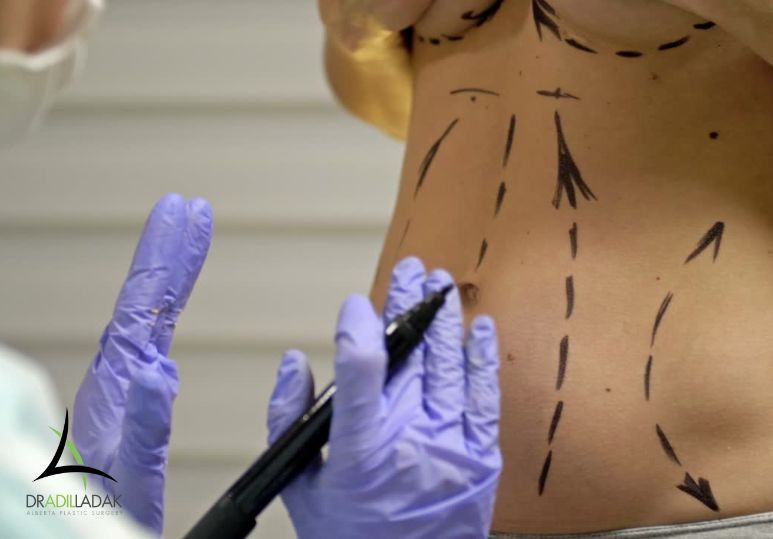Choosing a plastic surgeon is a significant decision that goes beyond credentials and experience. The success of any cosmetic or reconstructive procedure is closely tied to the communication between you and your surgeon, as well as the trust you develop in their abilities. In this blog, we'll explore how effective communication and trust play a pivotal role in the process of selecting a plastic surgeon. By understanding the importance of these factors, you can make an informed decision that ensures your safety, satisfaction, and the achievement of your desired outcomes.
1. Clear Communication
Effective communication is the foundation of a successful surgeon-patient relationship. During consultations, a skilled plastic surgeon actively listens to your goals, concerns, and expectations. They should encourage open dialogue and answer all your questions, ensuring you have a comprehensive understanding of the procedure, potential risks, and expected outcomes. Clear communication establishes realistic expectations, helping you make informed decisions that align with your desires.
2. Customized Treatment Plans
No two patients are alike, and plastic surgeons recognize the importance of personalized treatment plans. Through open communication, a surgeon gains insights into your unique needs and desires. This information allows them to tailor a treatment plan that caters to your specific goals, facial or body characteristics, and desired results. A customized approach ensures that the outcome aligns with your vision, boosting your confidence and satisfaction.
3. Trust Building
Trust is an essential component of the surgeon-patient relationship. As you discuss your goals and concerns, your plastic surgeon should actively build trust by addressing your worries, demonstrating expertise, and presenting realistic expectations. A trustworthy surgeon is transparent about the potential risks and outcomes of the procedure, ensuring you have all the information you need to make an educated decision.
4. Reviewing Portfolios
Reviewing before-and-after portfolios of previous patients can provide insight into a plastic surgeon's skill and expertise. Visual evidence allows you to assess the quality and consistency of their work, helping you envision potential outcomes for yourself. While portfolios are helpful, they should be supplemented with direct conversations with the surgeon to ensure the context and expectations align.
5. Safety and Confidence
Effective communication and trust are vital for ensuring your safety and confidence throughout the surgical process. By openly discussing your medical history, lifestyle factors, and any concerns, your surgeon can make well-informed decisions that minimize risks and optimize outcomes. A strong surgeon-patient rapport also enhances your comfort and confidence, reducing anxiety and promoting a positive surgical experience.
6. Addressing Realistic Expectations
A reputable plastic surgeon helps you set realistic expectations for the procedure. Clear communication ensures you understand what can and cannot be achieved through surgery. Surgeons should avoid making promises that sound too good to be true and instead provide honest assessments of what the procedure can realistically achieve. This approach prevents disappointment and ensures you are satisfied with the results.
7. Post-Operative Care and Follow-Up
Communication and trust extend beyond the surgery itself. A skilled plastic surgeon provides clear post-operative care instructions and schedules follow-up appointments to monitor your recovery. During these visits, your surgeon assesses your progress, addresses any concerns, and ensures that your recovery is proceeding as planned. This ongoing communication reinforces the trust you've developed and ensures a successful healing process.
In the realm of plastic surgery, choosing the right surgeon involves more than evaluating qualifications and experience. Effective communication and trust are pivotal factors that can significantly impact your surgical journey and outcomes. Through clear communication, you can express your goals, address concerns, and establish a personalized treatment plan that aligns with your vision. Building trust ensures you're in the hands of a capable professional who prioritizes your safety, satisfaction, and well-being. By understanding the role of communication and trust in selecting a plastic surgeon, you can make a decision that leads to a successful surgical experience and results that exceed your expectations.
FAQ
Q: What Qualifications Should I Look for in a Plastic Surgeon?
A: When selecting a plastic surgeon, it's crucial to look for board certification in plastic surgery. This certification ensures that the surgeon has completed rigorous training and has met the necessary standards for safety and expertise. Additionally, you should review their experience, before-and-after portfolios, and patient reviews to gauge their skill and patient satisfaction.
Q: How Can I Ensure Open Communication with My Plastic Surgeon?
A: Open communication is essential for a successful surgical journey. During consultations, ask questions about the procedure, potential risks, recovery process, and expected outcomes. A skilled plastic surgeon will actively listen to your goals and concerns, address any queries, and establish a personalized treatment plan that aligns with your desires.
Q: What Role Does Trust Play in Choosing a Plastic Surgeon?
A: Trust is paramount when selecting a plastic surgeon. A trustworthy surgeon is transparent about the procedure's potential outcomes, risks, and limitations. They build trust by addressing your concerns, demonstrating expertise, and presenting realistic expectations. Trust ensures your safety, satisfaction, and confidence throughout the surgical process. Reviewing before-and-after portfolios and patient testimonials can also help establish trust in the surgeon's abilities.






